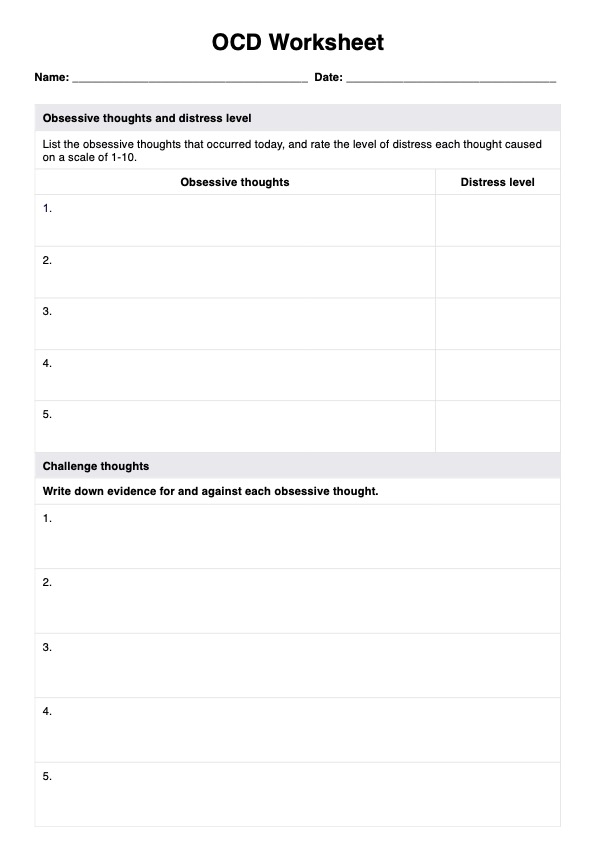The OCD Worksheet is a tool for individuals struggling with OCD. It offers a structured format for monitoring and organizing their thoughts and behaviors, fostering heightened self-awareness and facilitating better treatment outcomes. By regularly filling it out and working with their therapists, individuals can delve deeper into their symptoms, gaining a clearer understanding of them and the ability to manage them more efficiently.

OCD Worksheets
Free OCD Worksheet template that helps you organize and enhance your therapy practice.
OCD Worksheets Template
Commonly asked questions
This worksheet promotes regular reflection on symptoms and tracking progress. It also helps to establish a communicative bond between clients and therapists and foster a structured routine, which has been proven to impact symptom management positively.
An OCD Worksheet captures a range of information regarding the client’s OCD symptoms and behaviors, including unwanted thoughts and compulsions, triggers, symptom severity, and the daily life impact of OCD. It also contains sections listing coping skills and positive affirmations that help clients gradually develop coping mechanisms and healthy symptom management strategies.
EHR and practice management software
Get started for free
*No credit card required
Free
$0/usd
Unlimited clients
Telehealth
1GB of storage
Client portal text
Automated billing and online payments











